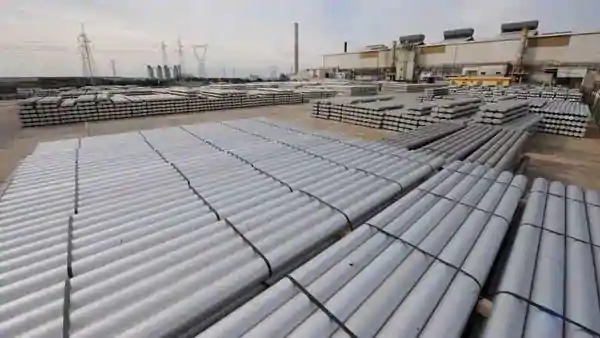
SOURCE: PTI
The country’s largest aluminium extrusion firm Jindal Aluminium, which controls over 30% of the domestic market, is increasing its focus on the defence and aerospace segments as it expects these sectors to be more active given the policy changes allowing private players, says a senior company official.
The ?3,000-crore Bengaluru-based company with 52 years of history is also the second largest maker of aluminium flat rolled products, producing 50,000 million tonnes of rolled products, giving it 10-12% of the market; and 1,20,000 million tonnes of extruded products per annum.
Its products reach 42 countries globally, contributing 15-20% of its topline annually, says vice-chairman and managing director Pragun Jindal Khaitan, the grandson of the group founder and chairman Sitaram Jindal.
“While we straddle the entire spectrum of the aluminium downstream industry, we see lot of scope to widen our focus on the defence sector with government allowing larger private participation in this. Another focus area is the aerospace segment, where also we see more business coming in from.
“Currently our revenue from these two segments is negligible. We want to really play big in these two areas,” Khaitan told PTI.
He, however, did not offer a revenue target from these new focus areas. Currently most of its business come from electrical, electronics, facade, solar and aviation, he said.
Another focus area will be the packaging segment and also the metro/high-speed rails, Khaitan said. “We also want to grow by catering to the packaging industry as well as high-speed/metro rail systems.”
Beverage cans are a big market but we will not get into manufacturing the cans, but only supply the raw material, he said.
Ruling out inorganic route to scale up, he said they plan to increase output gradually in a modular manner every year so that both manpower and technology go hand in hand to meet rising demand.
Ramping up capacity with the help of technology is what we are looking forward to and not in snapping up an existing plant because mergers have their own cultural and integration issues.
Though the pandemic-driven lockdowns had hit production in the initial months of the first quarter, the operations are close to 80% of the pre-pandemic days now, he said and he expects this fiscal to be marginally better than last year when it had closed with a topline of ?3,000 crore. He refused to share bottomline numbers since the company is privately held.
He also ruled out taking it public saying they don’t need additional capital given the fact that they have been profitable from the very first year of operations.
He said there is no plan to defer the annual capex which typically is under ?80 crore because of the pandemic. A few of the projects have been delayed by a few months due to the pandemic but there is no curtailing of capex, he said.
Khaitan, who was recently promoted as the vice-chairman also ruled out increasing export focus saying the domestic market is too large — with per capita aluminium intake of 2.2 kg annually as against the global average of 42 kg.






